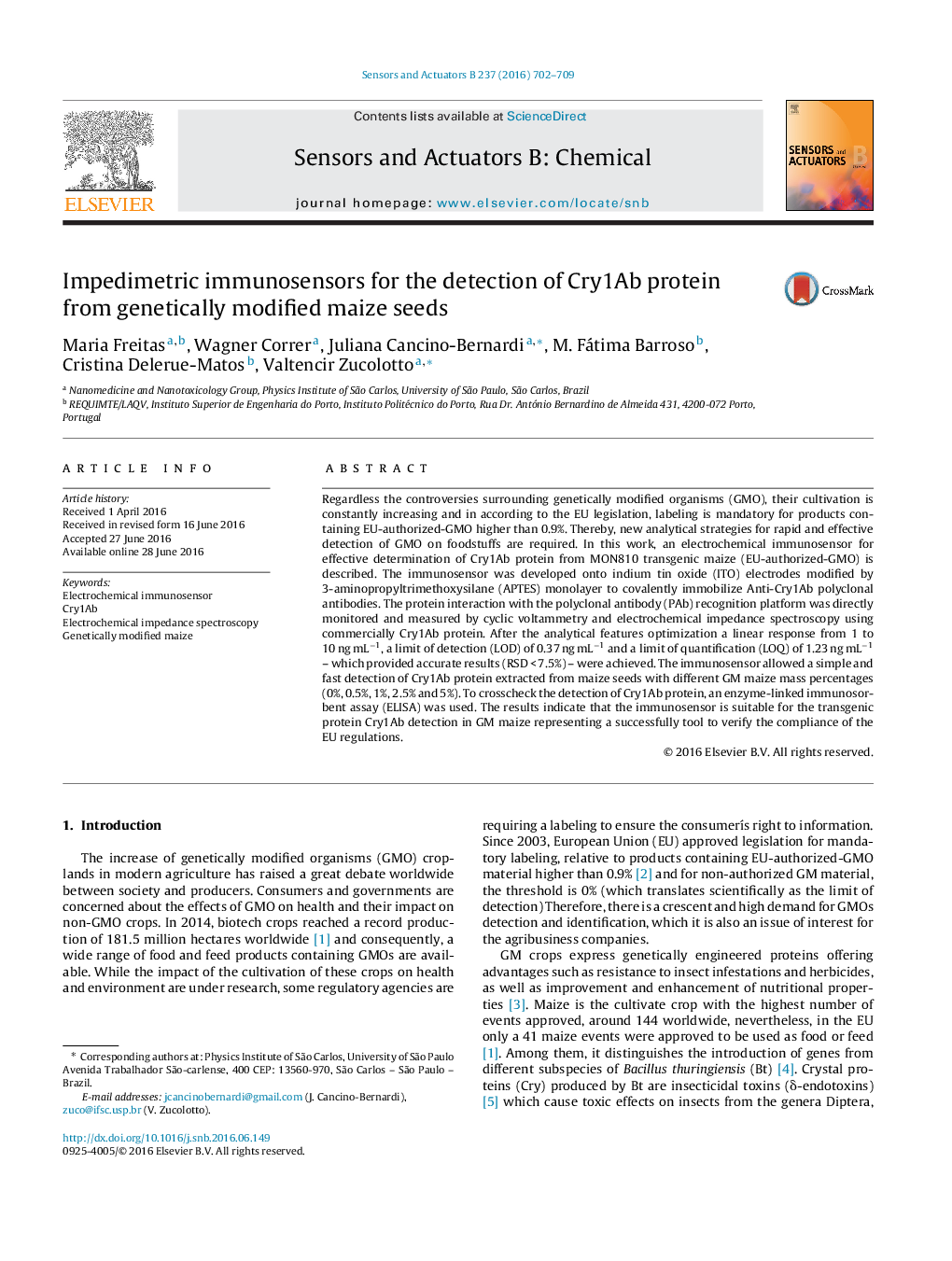| Article ID | Journal | Published Year | Pages | File Type |
|---|---|---|---|---|
| 742305 | Sensors and Actuators B: Chemical | 2016 | 8 Pages |
Regardless the controversies surrounding genetically modified organisms (GMO), their cultivation is constantly increasing and in according to the EU legislation, labeling is mandatory for products containing EU-authorized-GMO higher than 0.9%. Thereby, new analytical strategies for rapid and effective detection of GMO on foodstuffs are required. In this work, an electrochemical immunosensor for effective determination of Cry1Ab protein from MON810 transgenic maize (EU-authorized-GMO) is described. The immunosensor was developed onto indium tin oxide (ITO) electrodes modified by 3-aminopropyltrimethoxysilane (APTES) monolayer to covalently immobilize Anti-Cry1Ab polyclonal antibodies. The protein interaction with the polyclonal antibody (PAb) recognition platform was directly monitored and measured by cyclic voltammetry and electrochemical impedance spectroscopy using commercially Cry1Ab protein. After the analytical features optimization a linear response from 1 to 10 ng mL−1, a limit of detection (LOD) of 0.37 ng mL−1 and a limit of quantification (LOQ) of 1.23 ng mL−1 – which provided accurate results (RSD < 7.5%) – were achieved. The immunosensor allowed a simple and fast detection of Cry1Ab protein extracted from maize seeds with different GM maize mass percentages (0%, 0.5%, 1%, 2.5% and 5%). To crosscheck the detection of Cry1Ab protein, an enzyme-linked immunosorbent assay (ELISA) was used. The results indicate that the immunosensor is suitable for the transgenic protein Cry1Ab detection in GM maize representing a successfully tool to verify the compliance of the EU regulations.
